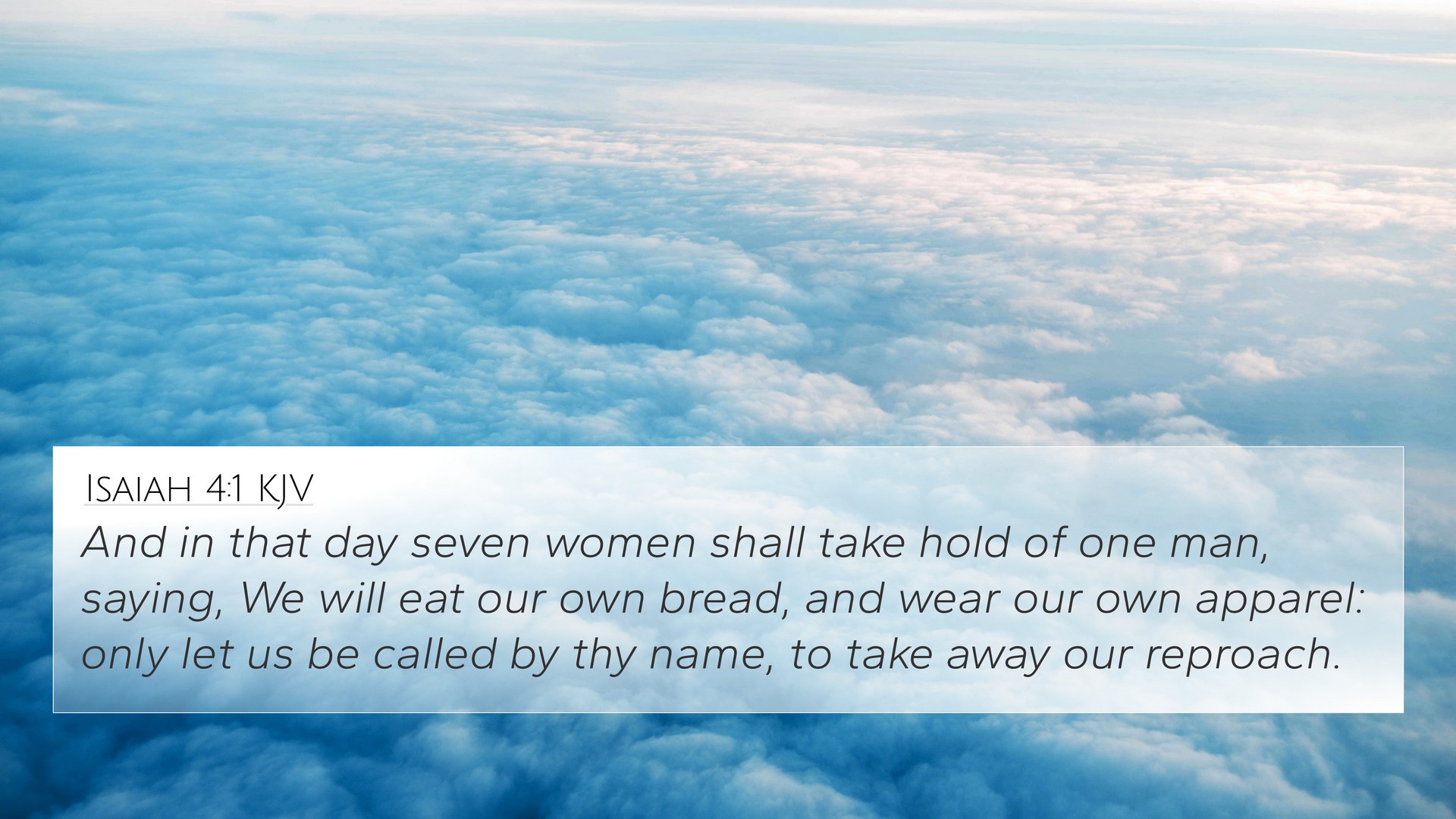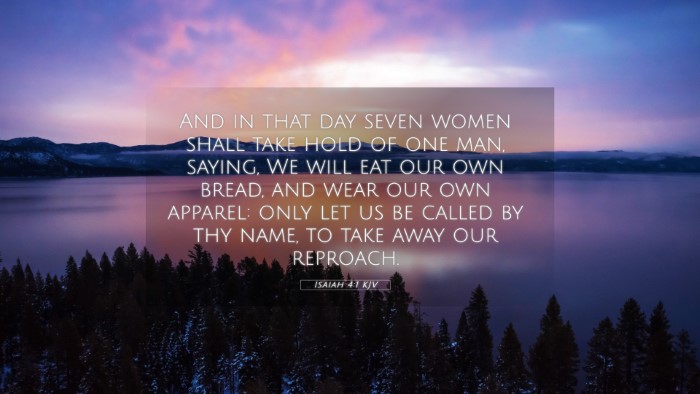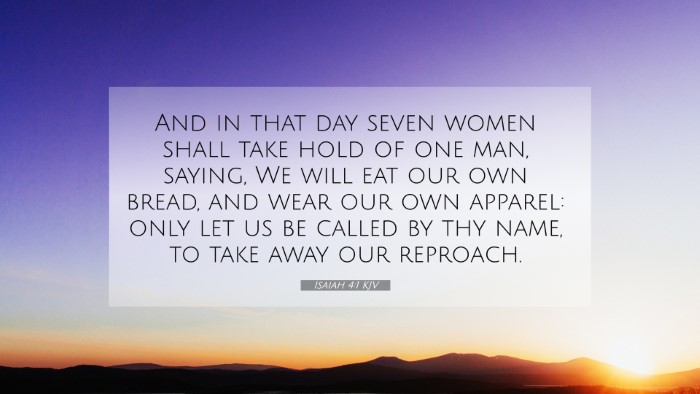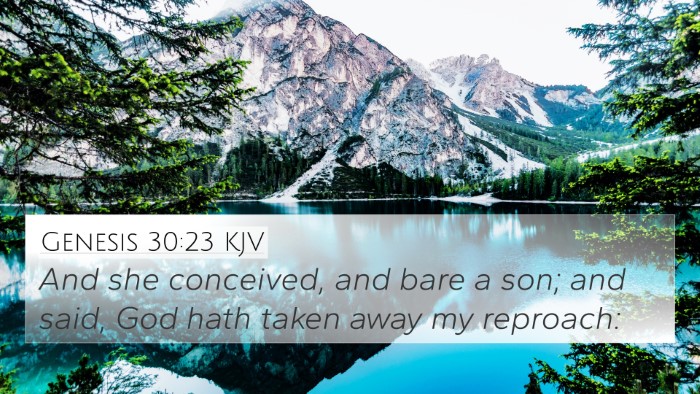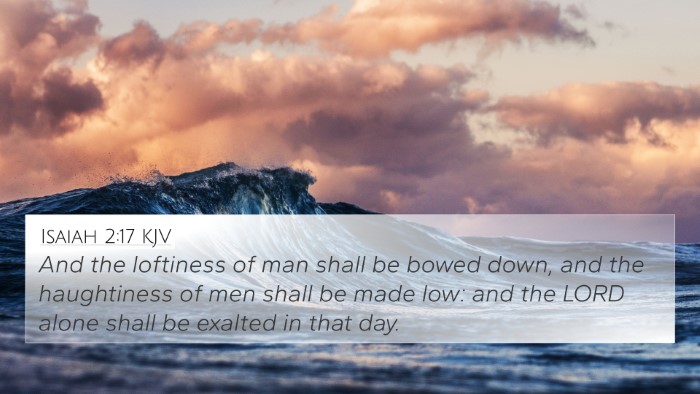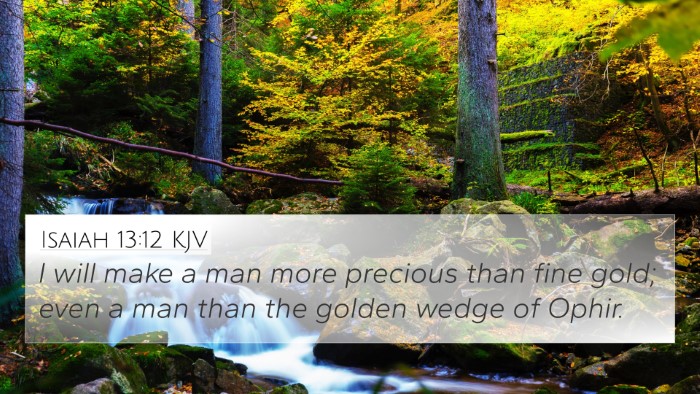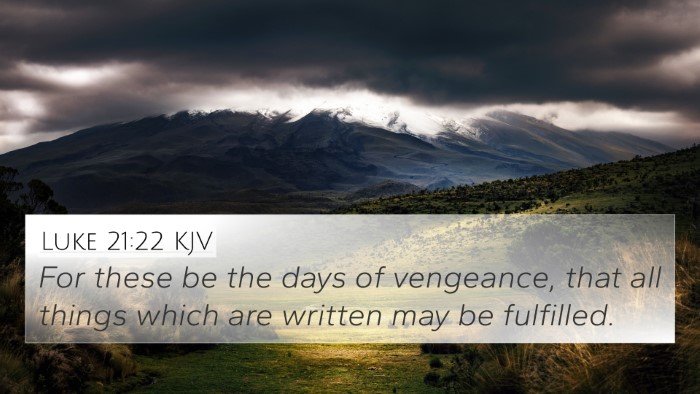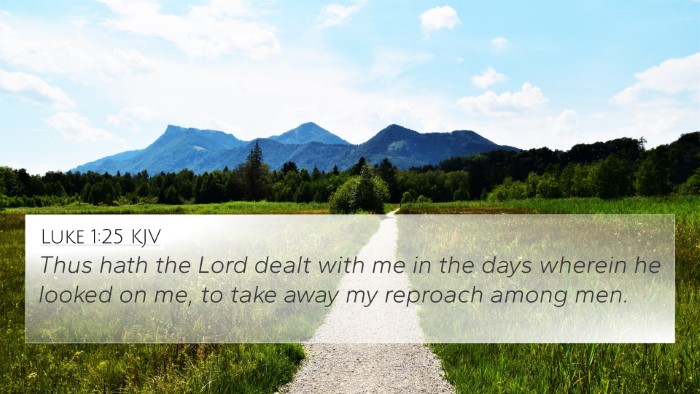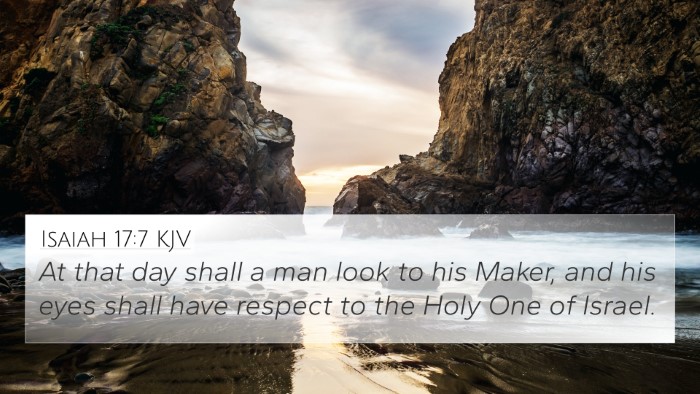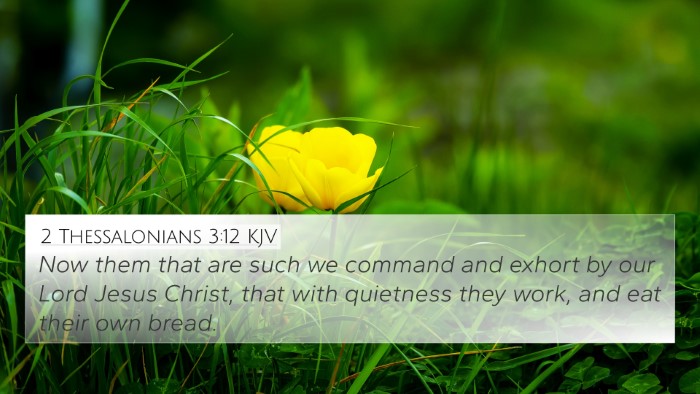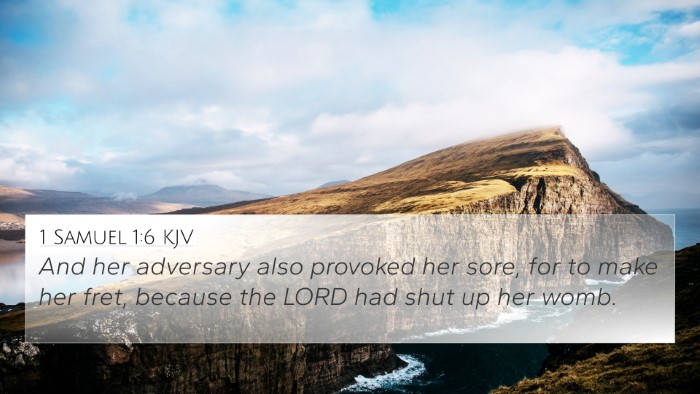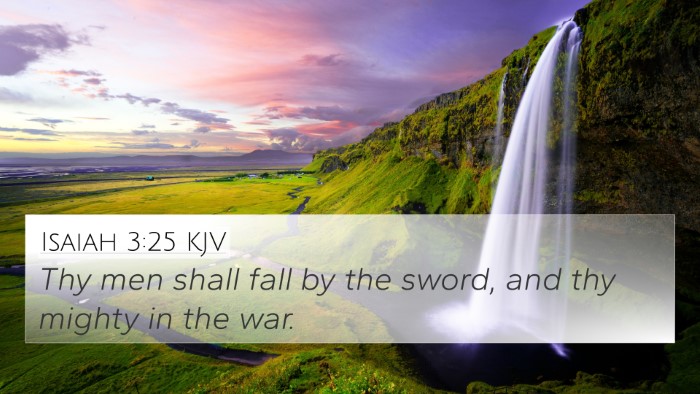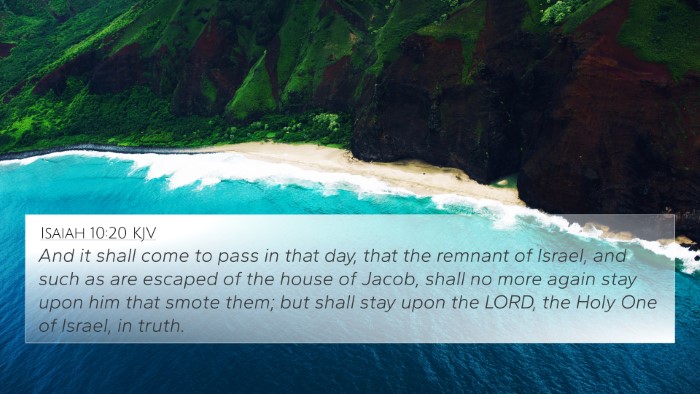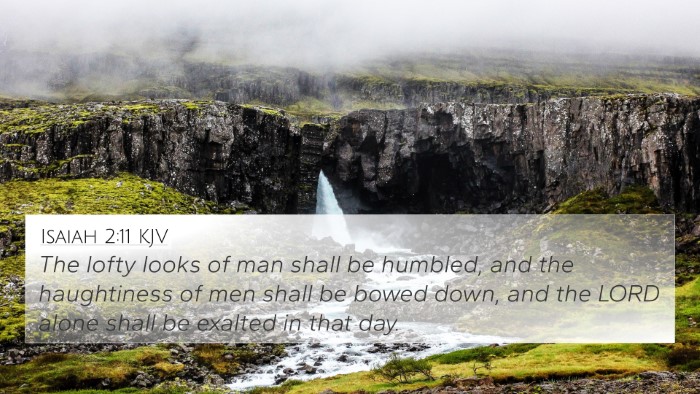Understanding Isaiah 4:1
Verse: Isaiah 4:1 (KJV) - "And in that day seven women shall take hold of one man, saying, We will eat our own bread, and wear our own apparel: only let us be called by thy name, to take away our reproach."
Contextual Background
The Book of Isaiah, authored by the prophet Isaiah, conveys messages of judgment, hope, and a future restoration for Israel. Chapter 4 presents a poignant commentary on the societal conditions following severe judgment and desolation.
Verse Meaning and Interpretation
In Isaiah 4:1, the imagery of women seeking a man signifies a desperate need for security and social standing in a time of great loss and turmoil. This reflects a cultural condition where women, often dependent on male counterparts for status, are willing to forsake conventional norms to find belonging.
Insights from Commentaries
-
Matthew Henry:
Henry describes the prevailing disgrace in Jerusalem after the Assyrian attacks, illustrating that the desperation depicted by women is symbolic of the broader decline of the nation. The phrase "take away our reproach" speaks to the societal stigma associated with being unmarried and childless during that era.
-
Albert Barnes:
Barnes emphasizes the metaphor of the seven women as a representation of the dire straits in which Israel found itself. The number seven is often considered complete, suggesting a fullness of need and desperation. The willingness of these women to care for their own needs shows a drastic shift from a previously dependent society.
-
Adam Clarke:
Clarke provides insight into how this verse embodies a prediction of a time when there will be a scarcity of men, leading women to prioritize status over traditional marital roles. This self-sufficiency narrates a societal transformation during a significant crisis, indicating a shift in gender roles and responsibilities.
Thematic Connections
This verse not only illustrates the themes of desperation and societal change but also connects to several other Biblical texts that deal with similar motifs of societal collapse and subsequent hope for restoration.
Bible Verse Cross-References
- Jeremiah 31:22: "How long wilt thou go about, O thou backsliding daughter? For the LORD hath created a new thing in the earth, A woman shall compass a man." - This verse complements Isaiah 4:1, reflecting the transformation of societal norms.
- Hosea 3:1: "Then said the LORD unto me, Go yet, love a woman beloved of her friend, yet an adulteress, according to the love of the LORD toward the children of Israel, who look to other gods, and love flagons of wine." - It continues the theme of relationships under duress.
- Isaiah 3:25-26: "Thy men shall fall by the sword, and thy mighty in the war. And her gates shall lament and mourn; and she being desolate shall sit upon the ground." - This portrays the societal breakdown that leads to the situation described in Isaiah 4:1.
- Micah 7:10: "Then she that is mine enemy shall see it, and shame shall cover her which said unto me, Where is the LORD thy God? Mine eyes shall behold her: now shall she be trodden down as the mire of the streets." - The shame and reproach are themes that resonate with the sorrow expressed in Isaiah 4:1.
- Revelation 21:2: "And I John saw the holy city, new Jerusalem, coming down from God out of heaven, prepared as a bride adorned for her husband." - A contrast is seen in the hope for restoration and reconciliation present in New Testament imagery.
- 1 Peter 3:7: "Likewise, ye husbands, dwell with them according to knowledge, giving honour unto the wife, as unto the weaker vessel, and as being heirs together of the grace of life; that your prayers be not hindered." - This reflects the restored view of relationships that promotes equality and respect.
- Luke 17:26-27: "And as it was in the days of Noe, so shall it be also in the days of the Son of man. They did eat, they drank, they married wives, they were given in marriage, until the day that Noe entered into the ark…" - This verse marks a contrast showing the normalcy of relationships before judgment as opposed to Isaiah's depiction of despair.
Applying the Lessons from Isaiah 4:1
This verse provides profound insights for modern readers about the nature of societal norms, the quest for identity and security, and the transformation of roles in times of distress. Ultimately, it serves as a reminder that dependency on societal structures can lead to a sense of loss when those structures fail.
Conclusion
Isaiah 4:1 encapsulates a deep yearning within humanity amidst its trials, illustrating the complex interplay between society, identity, and desperation. The connections among related scriptures enrich our understanding of its message and call for a thoughtful reflection on the nature of God's design through the struggles of His people.
